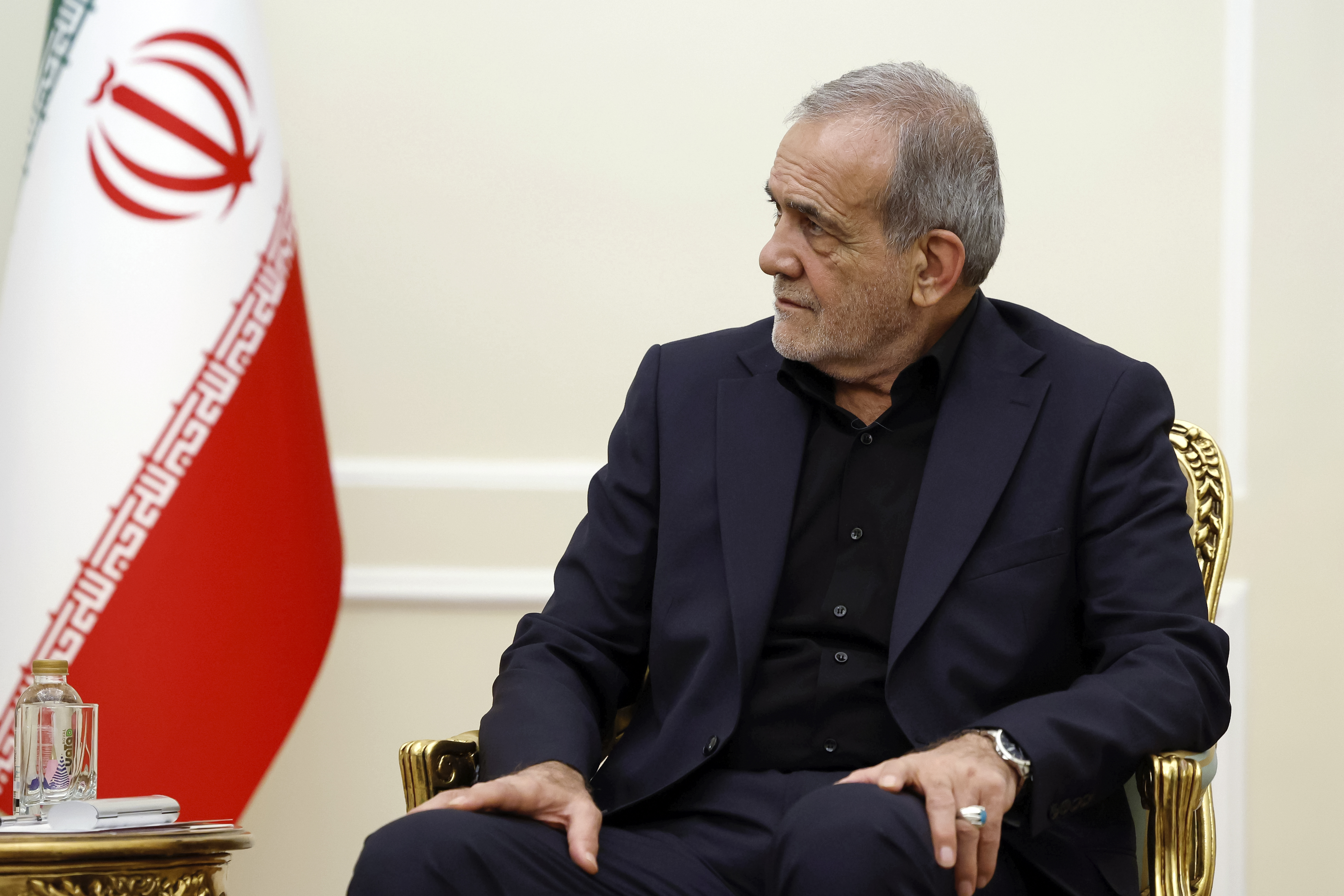
DOHA/TEHRAN - Iranian President Masoud Pezeshkian said Wednesday that Iran does not seek war, but will respond if Israel acts against the country.
Pezeshkian made the remarks following his meeting with Qatari Emir Sheikh Tamim bin Hamad Al Thani during his official two-day visit, which aimed to strengthen bilateral ties and regional cooperation.
According to Iranian media, before his departure, Pezeshkian stated: "We will pursue two goals in this trip. The first is to engage in dialogue with the Qatari government on cooperation agreements."
ALSO READ: Iran vows to enhance cooperation with Russia
Secondly, "we will address the critical regional situation, including Israel's violations of international law and the targeting of innocent civilians," Pezeshkian said. "If the Zionist regime does not stop its crimes, it will face harsher reactions."
Pezeshkian is also scheduled to attend the Asia Cooperation Dialogue Summit, which will be held on Thursday.
Root cause
Iran's Supreme Leader Ali Khamenei said on Wednesday that the root cause of problems in West Asia is the presence of the United States and certain European countries in the region.
He made the remarks during a meeting with a group of Iranian elites and scientific talents in the capital Tehran, while elaborating on recent developments in the region, according to a statement published on the website of his office.
Khamenei said that if the United States and certain European countries leave the region, "conflicts, wars, and clashes will stop completely."
He emphasized that regional states are capable of governing themselves and can co-exist in peace and prosperity.
His remarks followed Iran's launch of approximately 180 ballistic missiles at targets in Israel on Tuesday evening. Tehran claims the attack was in retaliation for Israel's assassinations of Hamas leader Ismail Haniyeh, Hezbollah leader Hassan Nasrallah, and senior IRGC commander Abbas Nilforoushan, as well as Israel's escalating "malicious acts" against Lebanese and Palestinian people with US support.
Deterrence established
Iran's atomic chief said on Wednesday that his country's armed forces have established necessary deterrence after Israel threatened to strike Iranian nuclear facilities.
President of the Atomic Energy Organization of Iran Mohammad Eslami made the remarks during an interview on the sidelines of a cabinet meeting in Tehran, while responding to Israeli threats of potential attacks on Iranian nuclear sites following Tehran's missile strike on targets in Israel Tuesday night, the Iranian Students' News Agency reported.
ALSO READ: Biden directs US forces to aid Israel's defense against Iran
US news portal Axios reported Wednesday that Israeli officials warned if Iran retaliates against a potential Israeli response to Tuesday's missile attack, "all options will be on the table, including strikes on Iran's nuclear facilities."
In a post on social media platform X early Wednesday, former Israeli Prime Minister Naftali Bennett said, "Israel has now its greatest opportunity in 50 years to change the face of the Middle East."
"We must act now to destroy Iran's nuclear program, its central energy facilities," he added.
Iran launched about 180 ballistic missiles at targets in Israel on Tuesday evening. Tehran claims this action was in retaliation for Israel's assassinations of Hamas leader Ismail Haniyeh, Hezbollah leader Hassan Nasrallah, and senior IRGC commander Abbas Nilforoushan, as well as Israel's escalating "malicious acts" against Lebanese and Palestinian people with US support.


